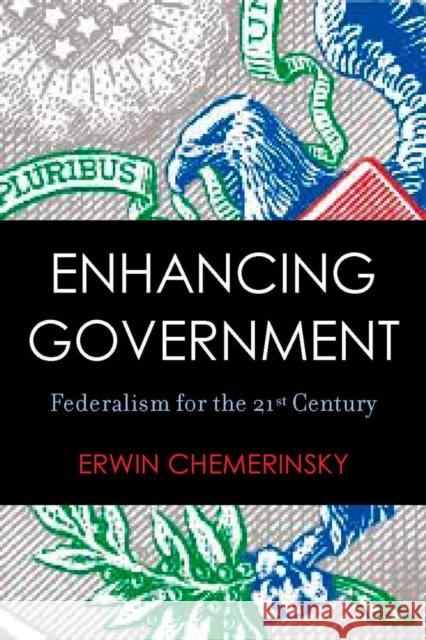Enhancing Government: Federalism for the 21st Century » książka
Enhancing Government: Federalism for the 21st Century
ISBN-13: 9780804751988 / Angielski / Twarda / 2008 / 312 str.
Enhancing Government: Federalism for the 21st Century
ISBN-13: 9780804751988 / Angielski / Twarda / 2008 / 312 str.
(netto: 389,42 VAT: 5%)
Najniższa cena z 30 dni: 408,06
ok. 22 dni roboczych.
Darmowa dostawa!
Federalism--the division of power between national and state governments--has been a divisive issue throughout American history. Conservatives argued in support of federalism and states' rights to oppose the end of slavery, the New Deal, and desegregation. In the 1990s, the Rehnquist Court used federalism to strike down numerous laws of public good, including federal statutes requiring the clean up of nuclear waste and background checks for gun ownership. Now the Roberts Court appears poised to use federalism and states' rights to limit federal power even further. In this book, Erwin Chemerinsky passionately argues for a different vision: federalism as empowerment. He analyzes and criticizes the Supreme Court's recent conservative trend, and lays out his own challenge to the Court to approach their decisions with the aim of advancing liberty and enhancing effective governance. While the traditional approach has been about limiting federal power, an alternative conception would empower every level of government to deal with social problems. In Chemerinsky's view, federal power should address national problems like environmental protection and violations of civil rights, while state power can be strengthened in areas such as consumer privacy and employee protection. The challenge for the 21st century is to reinvent American government so that it can effectively deal with enduring social ills and growing threats to personal freedom and civil liberties. Increasing the chains on government--as the Court and Congress are now doing in the name of federalism--is exactly the wrong way to enter the new century. But, an empowered federalism, as Chemerinsky shows, will profoundly alter the capabilities and promise of U.S. government and society.











